Category: Dementia
Articles about dementia care including the various types of dementia often in the terminal stage including caregiver tips and instructions for comfort care.
Articles about dementia care including the various types of dementia often in the terminal stage including caregiver tips and instructions for comfort care.

Caring for a loved one with dementia can be challenging, especially when it comes to preventing falls. One innovative and inexpensive solution is using pool noodles as bed bumpers. This article provides a comprehensive guide on effectively utilizing pool noodles to create a safe and secure sleeping environment, reducing the risk of falls and injuries. From selecting the right noodles to proper installation techniques, we cover everything you need to know to ensure your loved one's safety and peace of mind.

Discover the transformative impact of music on dementia patients in this comprehensive guide. From improving cognitive function to enhancing mood and social engagement, music therapy offers a non-pharmacological approach to dementia care. Explore the science, benefits, and practical applications of integrating music into treatment plans for dementia patients.
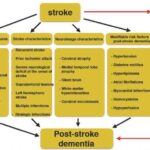
Stroke-induced dementia is a complex condition that affects both patients and their caregivers. In this guide, we’ll explore the impact of strokes on cognitive function, practical caregiving strategies, and considerations for maintaining quality of life.
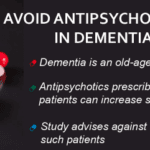
Unveiling the connection between antipsychotic drugs and dementia, this article delves into how these medications may elevate the risk or exacerbate symptoms. It provides a thorough examination of current research, expert opinions, and alternative approaches to managing dementia.

Unveiling the pivotal events that may fast-track dementia progression. This article delves into how fractures, ulcers, infections, dietary habits, and certain medications like statins play a role in accelerating the onset and severity of dementia symptoms.
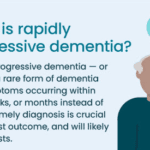
This article explores Rapidly Progressive Dementias, detailing risks, causes, and management strategies. It also provides essential information on hospice services and how they support patients and caregivers during challenging times.

Living with dementia brings unpredictable days. This guide delves into the factors that influence the good and bad, offering insights and practical tips for caregivers to navigate the ever-changing landscape of dementia care, ensuring every day counts.

Discover compassionate care techniques that address depression and anxiety in dementia without relying on antidepressants. This article delves into holistic approaches that enhance quality of life and promote mental well-being in dementia care.

Explore how extended hospice care for dementia patients benefits families and saves Medicare money despite regulatory challenges around six-month prognosis rules.

This guide offers practical advice for caregivers handling the challenges of undiagnosed dementia. Learn to create a supportive environment, recognize early signs, and navigate healthcare options.

Dive into the world of dementia diagnosis through MRI findings. This guide explores how different MRI indicators can hint at the type of dementia a patient might have. With real-life case studies, understand the importance of early detection and the future of MRI in dementia research.

This article offers insight into the complexities of dementia’s progression, providing families and caregivers with the knowledge to differentiate between everyday fluctuations and actual advancements in stages.
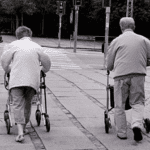
Discover how to manage wandering in dementia with practical strategies. Learn to create a safe environment and prevent risks effectively.

Creating a safe space for dementia patients involves innovative techniques like camouflage to prevent wandering. By disguising doors as walls or windows, caregivers can reduce elopement risk and ensure a secure, comforting environment. Learn how these methods can enhance safety and dignity.
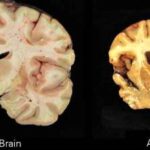
Learn about Chronic Traumatic Encephalopathy (CTE) dementia, its symptoms, diagnosis, and care strategies to support those affected and their families.

Learn about cortical dementia: its symptoms, treatments, and impact on daily life. Get empowered with essential knowledge to navigate this condition.

Adult daycare can be a great way to support your loved one with dementia. It offers engaging activities and social interaction, while giving caregivers some much-needed respite. Learn how to choose the right center and prepare for the transition.

Discover practical strategies for supporting a loved one with cognitive decline during doctor visits. From preparation to follow-up, learn how to communicate effectively, respect autonomy, and handle sensitive topics. This guide offers valuable tips for caregivers to ensure productive appointments and quality care for their loved ones.
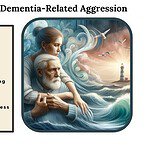
Dementia can lead to aggressive behavior in elderly patients, causing distress for both them and their caregivers. This comprehensive guide explores the underlying causes of aggression, from sleep disturbances to medication side effects, and offers practical, empathetic strategies for managing these challenging situations and improving the quality of life for all involved.

Dementia is a word we use to describe a significant change in the brain that makes it hard for people to remember things, think clearly, make decisions, or even control their emotions. It’s like a fog that slowly creeps in, affecting how a person thinks, feels, and lives daily. It’s not just one disease but a group of symptoms that can be caused by different diseases, including Parkinson’s and Alzheimer’s.
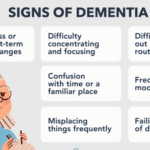
Learn to recognize early dementia signs and explore care options, including hospice. This guide offers insights into dementia, practical care tips, and when to seek professional help.

Caring for a loved one with dementia in rural areas can be challenging when local care facility options are limited. This guide explores alternatives, such as contacting organizations like the Alzheimer's Association, considering different facility types (adult day care, long-term care, respite care, memory care), seeking financial assistance, evaluating hospice eligibility, and assessing life plan/continuing care communities. It also addresses the legal and ethical implications of using hospitals as a last resort.
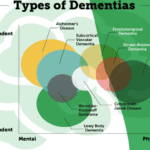
This article summarizes the twelve known types of dementia, which are the most common and well-studied forms of this condition. You will learn about the signs and symptoms of each type, how they are diagnosed, what causes them, and how they are treated. This article is intended for family members and caregivers of people with dementia who may want to understand more about the condition and how to support their loved ones.

Explore the complex world of dementia-related aggression and learn how to identify its underlying causes. This comprehensive guide offers insights into medication-related issues, pain management, and non-pharmacological interventions. Discover compassionate care strategies to support patients and caregivers on this challenging journey.